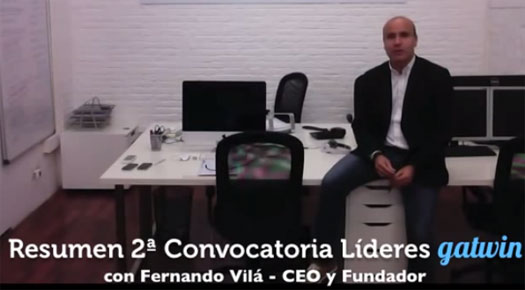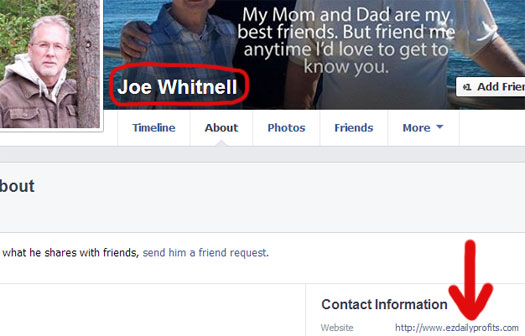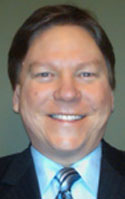Phil Ming Xu linked to Vizinova (Global Unity)
 Facing a regulatory crackdown in multiple jurisdictions, earlier this month Ponzi mastermind Phil Ming Xu publicly announced that he was giving up his WCM777 empire.
Facing a regulatory crackdown in multiple jurisdictions, earlier this month Ponzi mastermind Phil Ming Xu publicly announced that he was giving up his WCM777 empire.
In a somewhat cryptic series of tweets, Xu revealed that he was ‘not a shareholder or officer of WCM777 or Global Unity’, having exited the company ‘due to investigations‘.
The story Xu pushed was that he’d sold off WCM777 and Global Unity to a new anonymous buyer, who he hoped would “legalize” the company and “continue his vision”.
Not surprisingly, turns out Xu might have been telling porky pies… [Continue reading…]
China fines Nu Skin and affiliates $781,000
 A week ago Nu Skin advised that it ‘would likely be fined by Chinese regulators‘. The predicted fines stemmed from an investigation was launched after Chinese media reported on suspicious business activity.
A week ago Nu Skin advised that it ‘would likely be fined by Chinese regulators‘. The predicted fines stemmed from an investigation was launched after Chinese media reported on suspicious business activity.
Back in January the state press agency Xinhua ran a series of reports that accused Nu Skin and their affiliates of “brainwashing” their affiliates, making false marketing claims and citing false government endorsement of the business.
In initial response to the media coverage, Nu Skin China ‘voluntarily suspended business promotional meetings and applications for new sales representatives‘.
Now, in an “update on regulatory reviews”, Nu Skin has revealed fines just shy of $800,000 have been handed out. [Continue reading…]
Karatbars International warning issued in Canada
 March is Fraud Prevention month in Canada and, having already issued a warning on Phil Ming Xu’s WCM777 Ponzi scheme earlier this month, the Autorité des marchés financiers (AMF) have now set their sights on Karatbars International.
March is Fraud Prevention month in Canada and, having already issued a warning on Phil Ming Xu’s WCM777 Ponzi scheme earlier this month, the Autorité des marchés financiers (AMF) have now set their sights on Karatbars International.
The AMF’s latest warning, issued on March the 20th, warns Quebec investors ‘to be cautious about an investment program linked to the German company Karatbars International GmbH‘. [Continue reading…]
Gatwin Review: Affiliate-based ecommerce app
 There is no information on the Gatwin website indicating who owns or runs the business. The company does however provide the following information on it’s IT properties and general locale:
There is no information on the Gatwin website indicating who owns or runs the business. The company does however provide the following information on it’s IT properties and general locale:
The website gatwin.com is managed by BETRÓVICA S.L., with CIF B 65898256 and address Calle Muntaner 354. Bajo interior. 08021 Barcelona, España.
The file created is located in the Betróvica S.L. registered office, under the supervision of GATWIN S.L., with CIF L709496X and address Edifici Pirineus 1, 4, 3º 2A de Erts, Principat d´Andorra.
The company Betrovica SL runs the website and Gatwin SL run the company itself.
The Gatwin website domain (“gatwin.com”) was registered on the 23rd of May 2013 and lists a Fernando Vila, operating out of Andorra (a European micro-state that is recognized as a tax-haven), as the domain owner.
Further research reveals Gatwin marketing material in Spanish, naming Vila as the CEO (and presumably owner?) of the company:

For whatever reason, Fernando Vila’s name does not appear anywhere on the Gatwin website.
Read on for a full review of the Gatwin MLM business opportunity. [Continue reading…]
Blessing Gold Club Review: $45-$110 cash gifting
![]() Blessing Gold Club claim to have launched in June 2013. A PO Box contact address in the US state of Pennsylvania is also provided, however this is little more than a forwarding address for mail.
Blessing Gold Club claim to have launched in June 2013. A PO Box contact address in the US state of Pennsylvania is also provided, however this is little more than a forwarding address for mail.
Blessing Gold Club provide a list of trustees and “admins” on their website, however no formal corporate executive structure is defined. Admin names are supplied with Facebook profiles and Gmail email addresses, indicating that this is an informal group of top affiliates rather than executive management.
The Blessing Gold Club website domain was registered on the 17th of June 2013 and lists a Joseph Whitnell as the owner. An address in the US state of Michigan is also provided.
Joseph Whitnell’s name does not appear on the admin or trustee pages of the Blessing Gold Club website, so his exact role and/or relationship with the company is not clear. His name on the domain registration however does suggest that he owns the company.
On Whitnell’s Facebook page, he lists the website “EzDailyProfits” in his contact information.

A visit to the supplied website reveals an affiliate link for MyAdvertisingPays, an advertising credit based Ponzi scheme. Whitnell would appear to be a MyAdvertisingPays affiliate.
Read on for a full review of the Blessing Gold Club MLM business opportunity. [Continue reading…]
MyStand Beta: Jonathan Budd’s Rippln spinoff?
 Details on Jonathan Budd’s recently beta-launched MyStand at this stage are sketchy.
Details on Jonathan Budd’s recently beta-launched MyStand at this stage are sketchy.
A YouTube video titled “MyStand is live! Join the Beta & Change the World” was uploaded on March 19th, during which Budd proclaims MyStand to have been three and a half years in the making.
Whilst that begs the question of whether or not Budd was always a part of the project or only recently attached his name to it (given his involvement with Rippln over the past year), there does seem to be some merit to the claimed MyStand development period.
On his LinkedIn profile, MyStand co-founder Shore Slocum cites his participation in Mystand dating back to September 2011:
September 2011 – Present (2 years 7 months) Greater San Diego Area
We are a leading edge Mobile Gaming platform. A leading example in the industry of Games that change the world as you play them.
MyStand is a game that as you play it you actually save the REAL Planet in REAL Time! Stay tuned it is almost here.
It’s not quite three and a half years but does indicate that MyStand wasn’t just conceived in the aftermath of Rippln going bust. Website records indicate a WordPress install going live on the MyStand domain in November 2013.
Anyway, given that Rippln only officially folded in January, MyStand is an app, there’s talk of “ripples” already and Budd was a co-founder (investor?) in Rippln, I thought I’d put together what’s currently available on MyStand. [Continue reading…]
Q International Review: Filters & nutrition
 Q International launched in 2011 and are based in the US state of North Carolina.
Q International launched in 2011 and are based in the US state of North Carolina.
Heading up the company are founders Evan Runde (CEO), Ken Walker (President and CFO) and John Walker (COO).
 In his Q International executive bio, Runde (right) is credited with an accounting, finance and economics background along with 20 years of network marketing experience.
In his Q International executive bio, Runde (right) is credited with an accounting, finance and economics background along with 20 years of network marketing experience.
As a multi-million dollar earner, he’s built large organizations in the U.S. and overseas. Evan has also provided consulting services to existing and start-up Network Marketing companies.
His success in the industry has been well documented in publications including Upline, Cutting Edge Opportunities, and Network Marketing Lifestyles.
Richard Poe in his landmark book on the industry, Wave 4 – Network Marketing in the 21st Century, devoted two chapters to Evan.
Runde’s MLM career appears to have begun around the mid 1990s, after a (non-MLM) franchise operation went sour. According to an online bio I found, Runde’s first attempt at MLM wasn’t all that successful. He then went on to join Life Plus, who are still in business today.
After Life Plus there’s a bit of a gap, with a blog created in 2009 linking Runde to “Rain Nutrition”, who were bought out by Rain International in 2011 (seed-based nutritional supplements).

Ken Walker is credited with being ‘a leader and top performer in the Network Marketing industry for 10 years’, however I was unable to find anything specific there either.
Ditto John ‘has years of experience in the network marketing industry’ Walker.
For the record I’m not doubting or attempting to undermine the experience quoted in the Walkers’ Q International bios, just that anything they’ve accomplished outside of MLM generalities appears to have been very low-key.
Read on for a full review of the Q International MLM business opportunity. [Continue reading…]
Bitcoin Zones Review: 150% ROIs via bitcoin
 Bitcoin Zones launched in February 2013 and claims to be
Bitcoin Zones launched in February 2013 and claims to be
supported by Bitcoin core developers and managed by bitcoin community members around the world, with the input of bitcoin communities.
Other than mentioning Bitcoin Zones was ‘founded to help people make and save Bitcoin in a sustainable way‘ on their “about us” website page, the company fails to disclose who owns or runs the opportunity.
The Bitcoin Zones website domain was registered on the 7th of February 2014, however the domain registration is set to private.
As always, if a MLM company is not openly upfront about who is running or owns it, think long and hard about joining and/or handing over any money. [Continue reading…]
TelexFree linked to “money laundering cartel”
![]() Following a month-long investigation into TelexFree, Rwanda recently decided to ban the scheme. Upon announcing the decision, the Rwandan Ministry of Trade claimed TelexFree’s activities were “similar to that of a pyramid scheme” and raised concerns it was facilitating money laundering.
Following a month-long investigation into TelexFree, Rwanda recently decided to ban the scheme. Upon announcing the decision, the Rwandan Ministry of Trade claimed TelexFree’s activities were “similar to that of a pyramid scheme” and raised concerns it was facilitating money laundering.
Now, in a followup report released by the Ministry, the Rwandan government is accusing TelexFree of tax evasion, exploitation and money laundering.
The TelexFree Ponzi plague arrived on Rwandan shores in mid 2013, with the company registering itself nationally as “PLI TelexFree (Rwanda) Ltd”. Then, over the next nine months, the company set about fleecing Rwandan affiliates and transferring their money offshore. [Continue reading…]
Kannaway Compensation Plan Review
 Currently in “Buzz Launch”, Kannaway are slated to go into pre-launch at the end of this month. Given that that’s now under two weeks away, the company has released it’s launch compensation plan into the wild.
Currently in “Buzz Launch”, Kannaway are slated to go into pre-launch at the end of this month. Given that that’s now under two weeks away, the company has released it’s launch compensation plan into the wild.
Typically I’d include a brief history to preface an MLM company review but as Kannaway launched a separate compensation plan for their Buzz Launch, I included the company history with that review. See the BehindMLM Kannaway Prelaunch Review for a company history and brief introduction to Kannaway’s product line.
Otherwise, read on for a full review of the Kannaway launch compensation plan. [Continue reading…]

